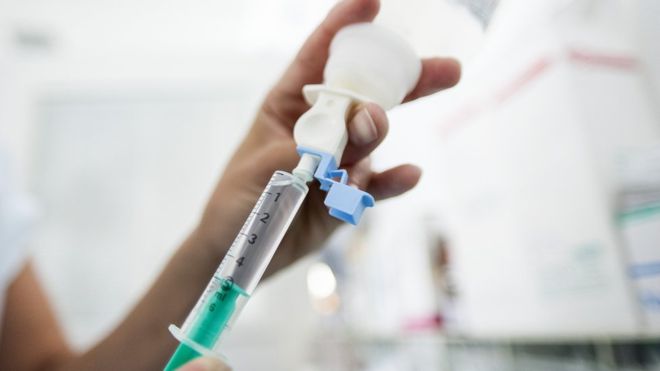At least 1.2 billion syringes are required to meet the need of Nigerians being treated in the country.
This is according to the Managing Director of Afrimedical Manufacturing & Supplies Ltd, Akin Oyediran.
Speaking at a meeting with industry stakeholders, he said manufacturing organizations in the country produce about three billion syringes, adding that with favourable policies, Nigeria has a good chance to be an exporter of syringes and needles.
He said some of the syringes currently being imported into the country were substandard but that the ones manufactured in the country were of the highest standards and with the approval of the World Health Organisation (WHO) , NAFDAC and other relevant health agencies.
On their part, the minister of state for health, Dr Tunji Alausa, and the minister of Industry, Trade and Investment, Dr Doris Nkiruka Uzoka-Anite, said the federal government was working towards boosting needles and syringe manufacturing industry in the country.
Alausa said President Ahmed Bola Tinubu had directed them to look into possible means of reducing the cost of pharmaceutical products and medical supplies in the country.
He said immediate and long term solutions had been developed to address the challenges, adding that the solutions will put the needles and syringe manufacturing industry on the path of sustainability, where it can begin to create well paying jobs for citizens, and produce high quality needles and syringes that would not be harmful to citizens as they visit hospitals or health care facilities to seek care.
Uzoka-Anite said one of the favourable policies developed to remove bottlenecks to local manufacturing in Nigeria, is the design of a backward integration program, which incorporates policies that affect medical devices.
She said the backward integration program would be launch soon once it is approved by the Federal Executive Council.
“That is one policy that will be a game changer for the medical device industry ,” she added.
Chairman, Medical Device Manufacturers Association of Nigeria, Dr Lanre Shittu, described meeting as historic, adding that the practical solutions being developed would also help stem the tide of medical devices company leaving the country.

 Join Daily Trust WhatsApp Community For Quick Access To News and Happenings Around You.
Join Daily Trust WhatsApp Community For Quick Access To News and Happenings Around You.


